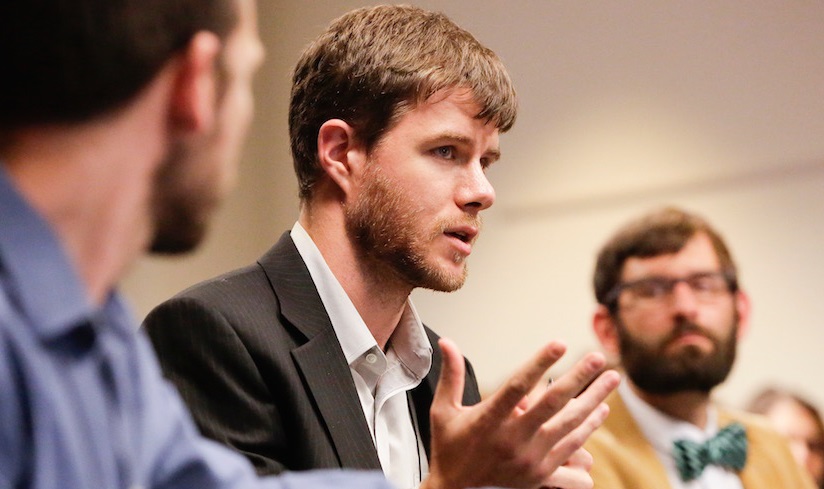David Berendes, a PhD candidate in Environmental Health Sciences, focuses his research on the household and neighborhood-level drivers of fecal contamination and enteric infection found in urban settings. He combines microbiology, epidemiology, and spatial analysis to assess the spread of fecal contamination in the urban environment.
In the Field With: David Berendes

David’s work is part of the SaniPath study, led by Dr. Christine Moe out of the Emory Center for Global Safe Water, Sanitation, and Hygiene and funded by the Bill and Melinda Gates Foundation.
David traveled to Vellore, India, in February 2015 for three weeks to collect data on household and neighborhood management of fecal sludge, taking the following photographs along the way.
“Overall, I was extremely impressed by the work and the health-care system our colleagues at Christian Medical College had in place,” says David. “It was my first time working exclusively in an urban environment, and it was definitely eye-opening.”
David is currently working on his dissertation; two of the papers are coming out of the data from his Vellore trip. Upon graduation, he plans to continue working in international WASH. While the U.S. will likely serve as his home base, David hopes his work continues to take him abroad (his WASH interests have also taken him to Rwanda and Haiti so far).
“No location has the same challenges or quite the same solutions as another,” he says. “It’s through dealing with these varying contexts that we discover the common themes that truly work.”


